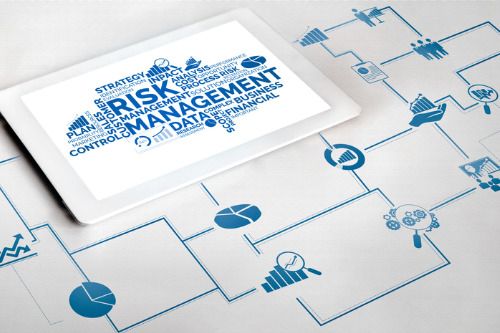

As recent global surveys have made clear, the top risk on business leaders’ minds today is the ongoing impact of the pandemic, both in terms of continued short-term effects on societies and economies, as well as longer term fallout that could cause political as well as social fragmentation, in turn impacting our ability to unite and fight against other threats, including climate change.
During a recent panel that hosted top risk and insurance experts, a similar sentiment prevailed. They’re concerned not just by the pandemic, but also about the next big threat that we’re not prepared to fend off, and how risk management thinking needs to adapt to account for these unknown risks.
“It’s easy to get really focused on the pandemic, but I think what worries me generally is resiliency, and what the pandemic has pointed out is that if you didn’t plan for [it], but you planned to be resilient, those companies have done better,” said Randy Nornes, managing partner in Aon’s enterprise client group, speaking at the Future of Insurance USA panel. “Whether the future holds a huge volcanic eruption or some new strain of cyberattack … at the end of the day, I think it’s going to come back to, how do you build a resilient organization?”
While the news has been dominated by COVID-19 for a year now, other catastrophes have likewise been concerning to watch unfold over the course of 2020. Karen Clark, founder of Karen Clark & Company, pointed out that in terms of natural catastrophes in the US, 2020 was “an unprecedented year.”
“It was an unprecedented hurricane season, [and we had] unprecedented wildfires, global record heats, and drought,” she listed. “This has pointed to the fact that catastrophes are increasing in frequency and severity, and much faster than they have in the past.”
While there are reliable catastrophe models that the insurance industry has been using for decades to manage risk, insurers are now worried about whether these models are keeping pace with the fast-evolving changes in terms of the scale of catastrophes.
“It’s a question of, are the models able to quantify [climate change and catastrophe risk] and bring it in fast enough so that insurers are prepared, and are [insurers] prepared for the future losses?” said Clark. “It’s the speed and accuracy of updating the models that we worry about, and [whether] we [are] accounting for all the changes in the environment.”
Mental health has likewise risen to the top of the risk pile, thanks to the massive turn to remote work and the broader toll that living through a global health crisis has placed on individuals. Swiss Re has specifically kept this issue top of mind for its own employees, as well as in its ongoing analyses of pandemic-related challenges, according to Jonathan Isherwood, Swiss Re’s CEO of reinsurance, Americas, and regional president. In fact, he pointed out, “We did a study of 4,000 consumers, and about a quarter of them are significantly concerned about mental health challenges, so how do we then work that into reflecting further on products or enhancements to products as we move forward?”
Amid all of the social and environmental challenges of 2020 that have kept risk managers up at night, there have also been major political moves that are likely to bring new risks to the forefront – namely Brexit and the election of a new US president. Taken together, this risk environment has meant that risk managers are dealing with tons of uncertainty, and their jobs are only going to get harder as time goes on and risks become more extreme in nature.
As a result, business leaders are turning to their risk managers for advice on how to anticipate new risks and how to navigate finding insurance coverages in a tightening marketplace, noted Laura Langone, head of insurance operations for Airbnb, during the panel.
However, she continued, “The bigger issues are, what are the new habits going to be, what does recovery actually look like, and what’s behind the corner that we’re not anticipating?”
The hospitality and tourism industries have been especially hard-hit during the pandemic, which puts Airbnb in a unique position of trying to survive and thrive amid the fallout. Back in March 2020, the company was looking for solutions and took another look at its insurance strategy with the aim of finding strategic opportunities to help it weather the storm, explained Langone. Nonetheless, the company found the insurance market lacking.
“Frankly, insurance companies were dealing with getting their data together and they couldn’t respond with new products two or three months out,” she said. Now, continued Langone, “We are really looking to think through what’s on the horizon and how do we take advantage of those opportunities?”
